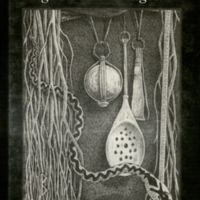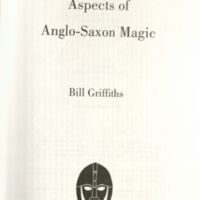Aspects of Anglo-Saxon Magic
Dublin Core
Title
Aspects of Anglo-Saxon Magic
Subject
Magic, Anglo-Saxon
Description
"Magic is something special, something unauthorised; an alternative perhaps; even a deliberate cultivation of dark, evil powers. But for the Anglo-Saxon age, the neat division between mainstream and occult, rational and superstitious, Christian and pagan is not always easy to discern. To maintain its authority (or its monopoly?), the Church drew a formal line and outlawed a range of dubious practices (like divination, spells, folk healing) while at the same time conducting very similar rituals itself, and may even have adapted legends of elves to serve in a Christian explanation of disease as a battle between good and evil, between Church and demons; in other cases powerful ancestors came to serve as saints." "It seems that there was a convergence of the two cultures, native and Christian, and this may affect the tendency to view pagan 'gods' as near omnipotent beings. Here it is argued that their origin was usually ancestral, their status rising to match the organisational needs of the Germanic migrants or to parallel the growing authority of the Church and its god. At a popular level did the familiar dead continue to be regarded as a source of benevolent power?" "In pursuit of a better understanding of Anglo-Saxon magic, a wide range of topics and texts are examined in this book, challenging (constructively, it is hoped) our stereotyped images of the past and its beliefs." "The texts are printed in their original language (e.g. Old English, Icelandic, Latin) with New English translations. Contents include: twenty charms; the Old English, Icelandic and Norwegian rune poems; texts on dreams, weather signs, unlucky days, the solar system; The Signs of the Fifteen Days before Doomsday and much more."
Creator
Bill Griffiths
Publisher
Norfolk, England : Anglo-Saxon Books
Text Item Type Metadata
Original Format
Book
Citation
Bill Griffiths, “Aspects of Anglo-Saxon Magic,” Humanities Hub, accessed February 27, 2026, https://humanitieshub.sdsu.edu/omeka/items/show/614.


